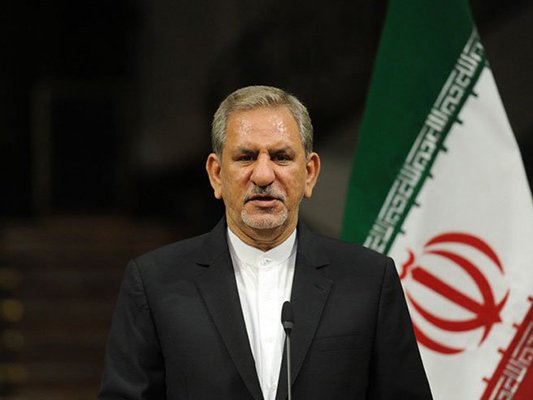Es’haq Jahangiri said Saturday the COVID-19 epidemic affects people’s health and has economic and social consequences.
“The most important responsibility of the Ministry of Economic Affairs and Finance is to adopt policies consistent with the current situation in order to ease economic pressure on people and affected enterprises,” he said in a meeting with senior economic authorities.
He said the government had to change some of its economic policies after the US imposed its sanctions.
“Unfortunately, we have been gripped by effects and consequences of the coronavirus in the country in recent weeks, making it all the more necessary to adopt new economic policies and plans through consultations with the country’s experts and economists,” Jahangiri noted.
“One of the government’s most important policies wat to boost people’s resistance against the pressure of the United States’ unfair sanctions. Today, we should be able to boost that resistance against the pressure caused by fallout from the coronavirus outbreak,” he said.
The vice president underlined that all government institutions and people are required to abide by the directives issued by the National Coronavirus Headquarters.
“The enforcement of the social distancing plan and other programs resulted in domestic enterprises getting closed and affected. Moreover, people making a living though day-to-day work also suffered [financially], and solutions should be presented to solve these problems,” he said.
Jahangiri underscored that sanctions restricted the government’s ability to access its financial resources.
“Still, at the very beginning of the coronavirus crisis, the government made the necessary planning to grant 12-percent loans to affected institutions and has been trying to create conditions to meet the needs of low-income families,” he added.
He said one of the key measures of the Ministry of Economic Affairs and Finance at this juncture is to help people not feel the pinch from economic pressure.
He called on institutions which are satellites of the Ministry of Economic Affairs and Finance to focus on efforts to resolve the problems of small and medium-sized enterprises to prevent their collapse in the midst of the coronavirus crisis.
He noted another mission of the ministry is to draw up plans to revive economy in the post-coronavirus era.
“As part of its objectives, this ministry should set targets with regards to job creation, sustainable development, curbing inflation and swelling the resources of the national budget,” he said.
He underlined that the country’s budget is now less dependent on oil revenues, adding the budget should be provided through other sources such as selling shares of state companies on the stock market and selling banks’ assets.
The vice president said the government plans to empower the private sector affected by the coronavirus outbreak in the domains of industry, agriculture and services.
He urged the privatization of state institutions, and added the private sector can own major industries, shipping companies and banks as well.
